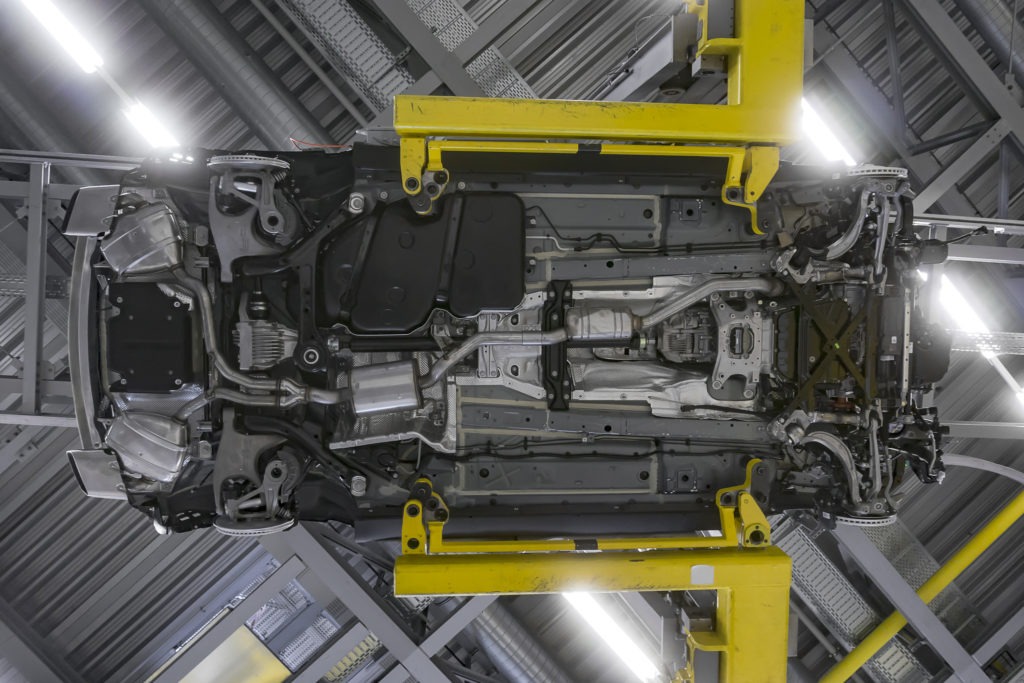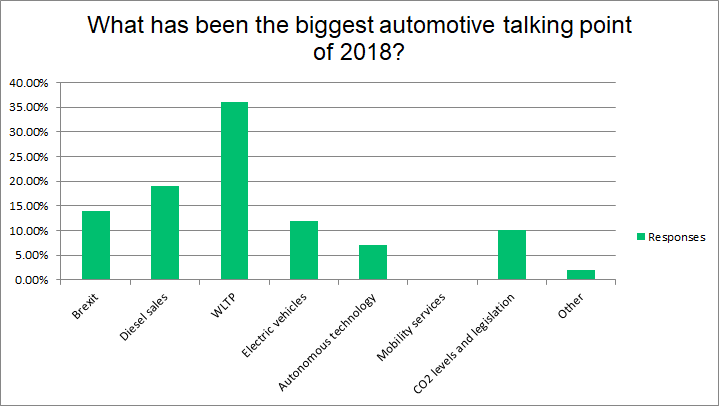Survey results: The talking points of the year
21 December 2018

21 December 2018
The last 12 months have seen challenges to the automotive sector evolve further. Diesel sales have continued their freefall, while new emissions regulations for all vehicles on sale have come into place. The situation surrounding Brexit has become even more unclear while CO2 legislation from Brussels has led to manufacturers accelerating their electric vehicle plans.

Therefore, Autovista Group asked in its latest survey what readers of the website and Daily News Brief felt was the biggest talking point of the year. The results are in, with a clear winner and some close placings behind.
With over a third (36%) of the vote, WLTP was crowned the winner of our latest poll. While the legislation came into force on 1 September 2017 for new vehicles going through type approval, 2018 saw the biggest impact. From 1 September, all vehicles on sale had to have gone through the rigorous testing procedure, which included a real-world portion and required every possible iteration of a vehicle to be examined. This led to a sales spike across Europe due to discounting and pre-registering in August, with the market in flux since. Some manufacturers halted vehicle supply as they fell behind, while profits were hit at carmakers and suppliers alike.
In a closely fought battle behind, second in our poll was the topic of diesel sales, with a 19% share. Ever since the Volkswagen Dieselgate scandal, the fuel has become a pariah in the consumer world, and the market share of the technology has collapsed in some European countries. This is despite evidence highlighting that the latest diesels are cleaner than ever, and slowing sales, together with new taxes, are pushing drivers into the used market, keeping older models on the road for longer.
Third in the results, with 14%, was Brexit, a topic that, with less than 100 days to go until the UK leaves the EU, has yet to become clearer. Carmakers have warned that a had Brexit, where the UK leaves without a deal in place, risks damaging the country’s car industry, with import and export tariffs and customs delays impeding supply chain and production. Some companies have already pulled investment from the UK, while others are considering their positions.
Next comes the topic of electric vehicles (EVs) with 12%. The year saw various launches and announcements. Daimler unveiled its EQC, Audi its e-tron and Porsche announced the production of its Mission E concept as the Taycan. VW announced plans to advance its EV strategy, while other companies put plans into place, as the automotive world shifts towards an electric future.
CO2 levels and legislation came next, garnering 10% of the poll. In the latter half of the year, the focus was on new legislation in Europe, for CO2 reduction targets by 2025 and 2030. The final figure of 37.5% by 2030, based on 2021 figures, has caused some consternation in the industry. This has also led to the advancement of EV strategies, as diesel sales collapse and petrol becomes more popular, levels of CO2 have risen in Europe, and could do again in 2019.
Autonomous technology gathered 7% of votes, in a year which saw fatal accidents involving Uber and Tesla, while manufacturers continued to form alliances and advance their research into driverless vehicles.
Finally, 2% chose the ′other’ option, with comments including a decline in investment and lack of profitability at carmakers. No votes were recorded for the option of mobility services.